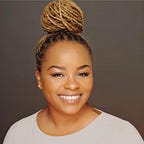Why Aren’t Black Men Caping for Sisters?
HBCU culture often reinforces patriarchy and male privilege.
Thankfully, glass ceilings may be a fading thought in HBCU leadership. Today, 19 women lead historically black college and university campuses. Women have served honorably as heads of student government, generating regional and national recognition for initiatives aimed at improving campus life, and life beyond their borders for voting rights advocacy, and positive promotion of the HBCU experience.
But all of these women, to their credit and our dismay, still had to be twice as good as their male counterparts to earn the burden of leadership. And with the exception of graduates from Spelman and Bennett Colleges, chances are if that you attended a historically black college or university, your president was most likely a black male.
With its religious roots in the black church, patriarchy is one of the most deeply-rooted, counterproductive vestiges of the black past. Draconian polices and respectability politics help to mask today what 50 years ago, was outright discrimination in unfiltered forms. Its function has been actualized since the beginnings of the black schoolhouse when men, white or black, typically served as administrators while women served as teachers.
Yet historically, even ‘women’s work’ could be unsafe terrain for black women. Anna Julia Cooper’s exceptionality was so apparent she was appointed a pupil-teacher around age ten, when she along with another scholarship awardee and classmate, became the first female student-teachers employed as teachers at Saint Augustine’s Normal School and Collegiate Institute — now Saint Augustine’s University.
Having successfully protested the preferential treatment given to men as candidates for the ministry, along with the subsequent barring of female students from subjects exclusively taught to boys, she graduated from Saint Augustine’s in 1877. She married Bahamian theology student George A.C. Cooper that same year, and was soon after forced to resign her teaching position — a custom for married women employed at the school.
Cooper went on to become the fourth African American woman to earn a doctoral degree in the United States, but with the exception of cruel fate, may have never had the chance to pursue the loftiest limits of higher education; she progressed in her learning only after her husband died after just two years of marriage.
If there is an argument to be made against Dr. Cooper’s heroic epic, its likely to be found in that growing number of female black college presidents, the percentage of which dramatically overwhelms in comparison to college leadership trends at predominantly white institutions.
But sometimes, even numbers can lie. No black male HBCU president to date has been subject to clauses spelled out in the contract of alumna and Alabama State University President Gwendolyn E. Boyd. And few, if any, have been the target of near-constant attacks by their school’s board like Florida A&M University President Elmira Mangum.
HBCU culture has many areas of greatly-needed improvement, and the dismantling of patriarchy is chief among them. It is a generational suffering from which women seldom find redress as we hold dear to fond memories of serving as sweethearts, wiping sweat from the brows of male initiates to black Greek-Lettered fraternities.
Like our foremothers, the current generation of black women rarely, if ever, places our very valid and real gender concerns ahead of our commitment to fighting racial injustice.
Today was a painful reminder of the consequences of that choice.
Korryn Gaines, a 23-year-old mother of two, lies dead following the gun-drawn efforts of the Baltimore County Police Department to serve a warrant for a traffic violation in a city that is home to two historically black colleges, Coppin State University and Morgan State University.
Also shot by police, her five-year old son, is said to have non-life-threatening injuries. However, this child, who watched as his mother was killed, is scarred in ways we cannot imagine for the remainder of his life.
Outrage, in reaction to her killing has been less representative — certainly when compared to Alton Sterling and Philando Castile. Black women are calling out black men for what would best be described as comparative silence, and at worst, painful, hateful misgynoir.
If patriarchy and misgynoir are to be dismantled in the wider black community, HBCUs must assume a prominent place in this fight. Black men, from campus executives to alumni to students, must assume a prominent role in evening out the culture to reduce their own sexism, and to promote the access to leadership and advocacy by black women.
HBCU women can no longer attend college merely to find a husband. Anna Julia Cooper would probably say we never did.
